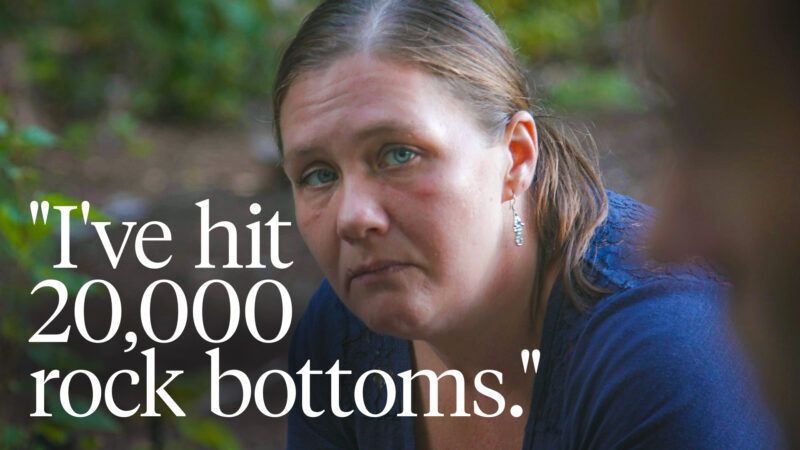Serene Wanted To Quit Heroin. She Tried Psychedelics.
A documentary short about a woman who takes ayahuasca to alleviate the pain caused by addiction

In 2020, a woman named Serene (she asked that we not use her last name to protect her privacy) reached out to two brothers named Rory and Ryan Van Tuinen after reading an article about their Waterbury, Vermont-based nonprofit Cultivating Connections. The Van Tuinens discussed using psychedelics as part of treatment to overcome addiction and improve mental health. Serene had struggled for years with an addiction to heroin and was ready to try anything.
As the article explained, Rory had taken the drug ayahuasca in 2019 as "a last-ditch attempt to overcome" a decadelong heroin addiction that had derailed his life. Though "neither Ryan nor Rory believe that hallucinogens are a cure-all," they say that without the ayahuasca, Rory would either still be "using" or he would be "dead." The key to recovery, they believe, was to accompany using the drug in concert with the "cultivation of meaningful human relationships."
Over five weeks, Serene participated in a series of preparatory meetings with the Van Tuinens. The next step was to travel to a cabin in the woods, where she would try ayahuasca and see if this new approach to treating addiction could put her life back on track.
Although the Van Tuinens have no official training or licensing, they are part of a broader movement. Therapists and researchers increasingly see psychedelics as an effective way of treating addiction and related issues, and the Food and Drug Administration is nearing approval of MDMA, psilocybin, and other substances in therapeutic settings.
"Our core beliefs, our behaviors, our patterns of relating, our patterns of coping get encoded in neural networks, which is why they are so difficult to change," says psychologist Andrew Tatarsky, the founder and director of the New York City–based Center for Optimal Living, where he specializes in addiction and harm-reduction therapy. "Psychedelic substances have this really interesting and unique capacity to loosen those structures and, in some cases, dissolve them so that people have the opportunity to rework their relationship to themselves and the world."
But Tatarsky also warns that psychedelics can be damaging to psychologically vulnerable individuals when administered by untrained practitioners such as the Van Tuinens. "If you face a traumatic experience and it's overwhelming to you and you don't have the support to titrate and manage the emotional intensity that comes up, it can actually be itself another traumatic experience."
Was Serene's ayahuasca use the beginning of her recovery—or a new problem to confront?
Music: The Quiet Aftermath, by Sir Cubworth; The Tides, by Ammil; The Tower of Light, by Turn; Collapsing All Around, by Amulets; Crystalline, by Amulets; Resolver, by Amulets; Length of Light, by Amulets.
Directed by Arthur Nazaryan & Qinling Li / Dec8 Productions; Produced by Arthur Nazaryan and Caroline Klewinowski; Camera by Arthur Nazaryan; Edited by Qinling Li and Mike Shum; Assistant editor, Phoebe McFarb; Additional cameras by Kevin Alexander and Jim Epstein; Audio mix by Ian Keyser; Color correction by Danielle Thompson
